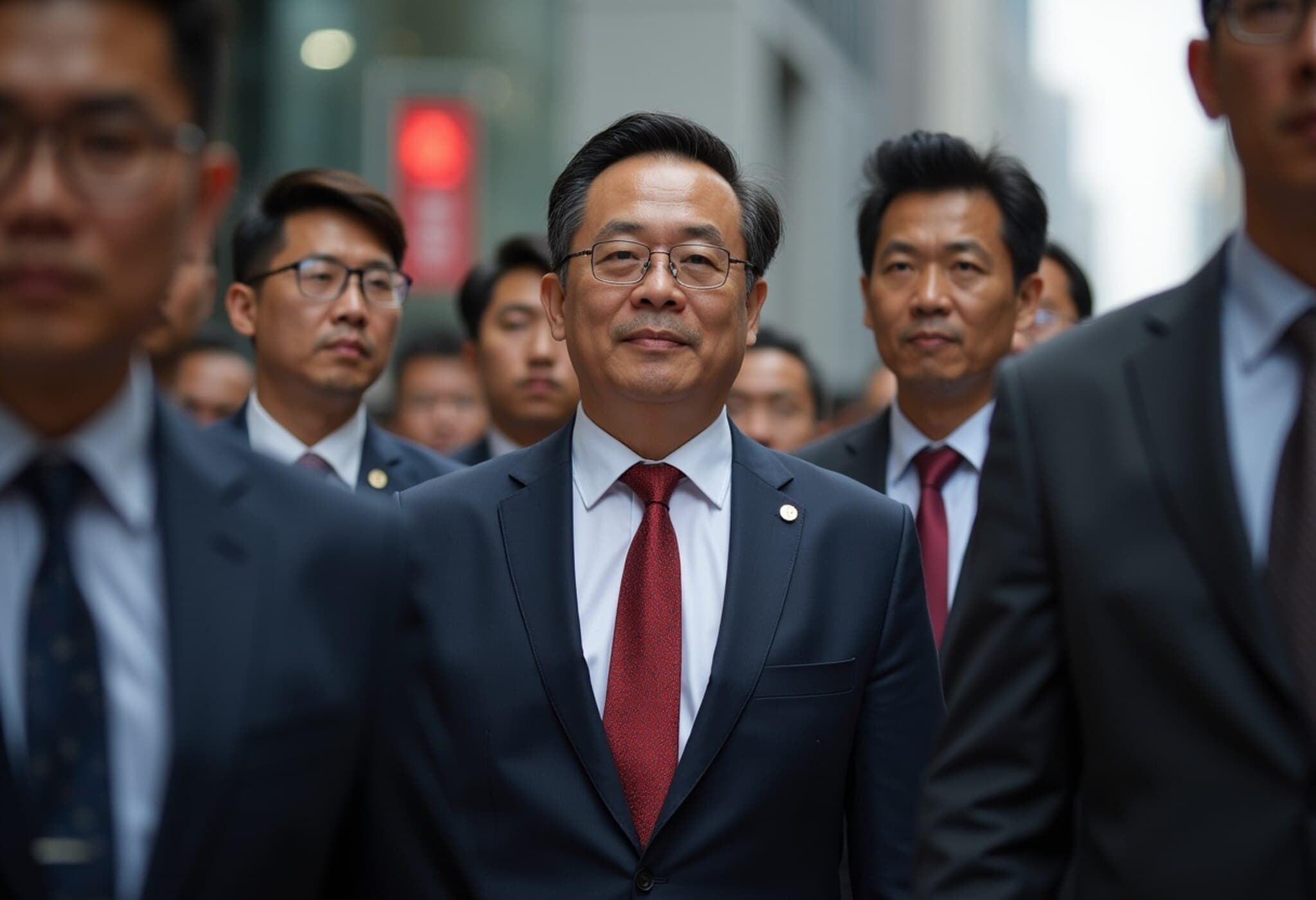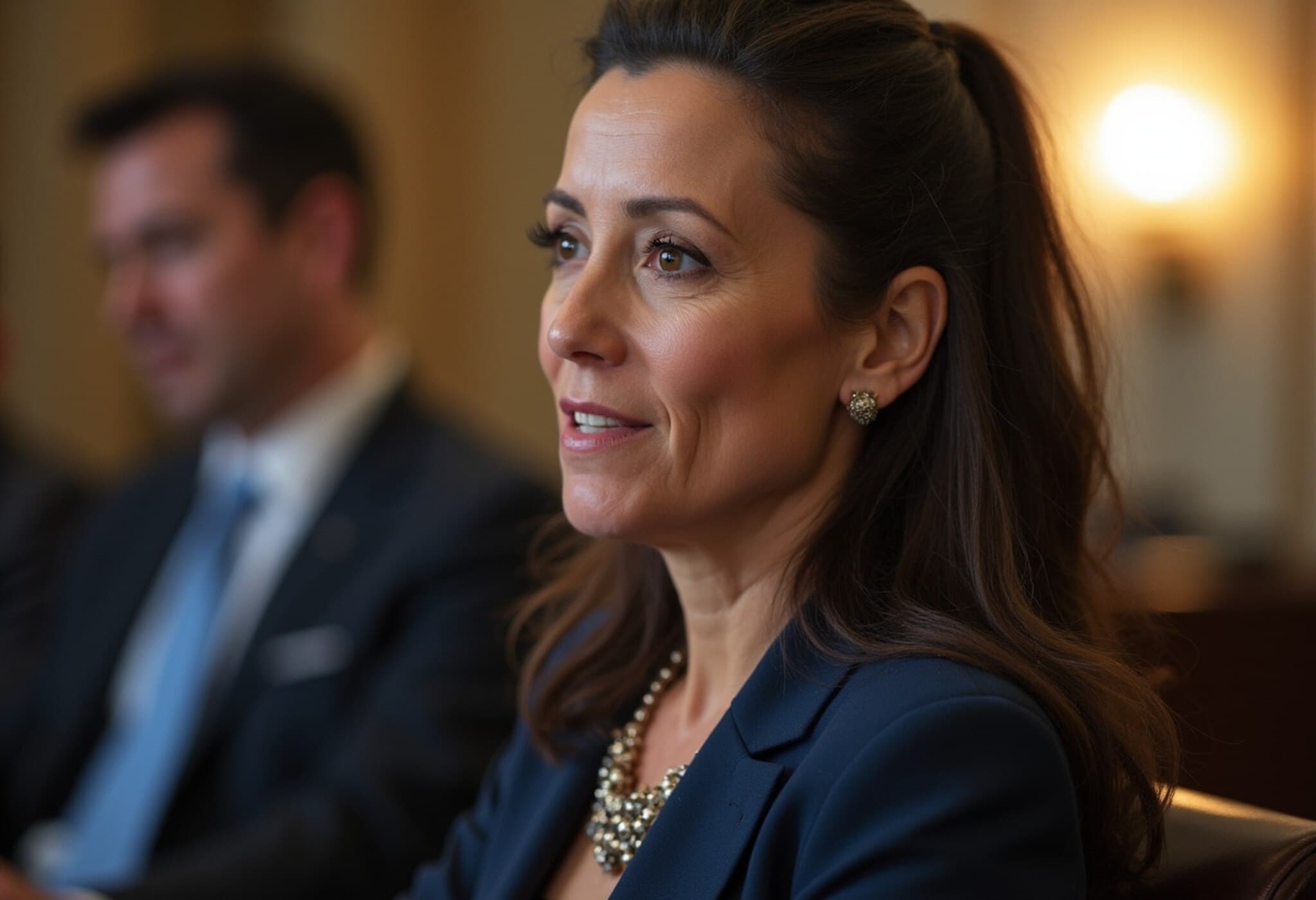Ohio Solicitor General Mathura Sridharan Confronts Online Racist Trolls
Mathura Sridharan, an accomplished Indian-American jurist recently appointed as Ohio’s 12th Solicitor General, has become the target of a disheartening wave of racist and xenophobic online commentary. Her groundbreaking appointment, meanwhile, has drawn both praise for her stellar credentials and ignorant criticism that echoes deeper societal tensions around race, identity, and patriotism.
A Proud Appointment Met with Unjust Backlash
Sridharan’s name and background provoked unwarranted scrutiny immediately following the announcement, as social media users questioned her American identity based solely on her ethnicity and name. Some trolls wrongly labeled her as a "non-US-origin" individual, ignoring her clear status as a United States citizen and her deep-rooted connection to the country.
Ohio Attorney General Dave Yost swiftly responded to the ignorant attacks with a firm and clarifying statement. Yost, who personally appointed Sridharan, underscored that she is a natural-born or naturalized American citizen, married to an American citizen, and the child of naturalized citizens. He emphasized, "If her name or her complexion bothers you, the problem is not with her or her appointment."
Expertise, Experience, and Excellence
To dismiss Sridharan on the basis of ethnicity overlooks her impressive professional accomplishments. Before her new role, she clerked for distinguished federal judges, including Judge Steven J. Menashi of the US Court of Appeals for the Second Circuit, and Judge Deborah A. Batts of the US District Court for the Southern District of New York.
Her academic credentials are equally remarkable. Sridharan holds a Juris Doctorate from New York University School of Law, and two master’s level degrees—a Master’s in Electrical Engineering & Computer Science from MIT, along with a Bachelor’s degree in Economics and Electrical Engineering & Computer Science from the same prestigious institute.
AG Yost highlighted her legal prowess, noting that she successfully argued before the Supreme Court of the United States (SCOTUS) last year. He praised her as brilliant and effective, saying, "She will serve Ohio well."
Trolling Takes a Religious Turn
Regrettably, the online vitriol extended beyond questions of nationality to Sridharan's faith, with some trolls fixating on whether she is a Christian—an irrelevant and inappropriate line of attack. A user even questioned her because of a traditional Indian bindi, suggesting misplaced concerns about loyalty and identity.
This underscores a persistent challenge faced by many Americans of diverse backgrounds: the burden of proving their "Americanness" amidst prejudiced narratives. Such hostility raises urgent questions about the inclusivity of American identity in contemporary times.
Contextual Insight: Why This Matters
This incident is symptomatic of broader societal struggles in the United States as it grapples with diversity, immigration, and what it means to be American. The backlash against Sridharan, despite her citizenship and qualifications, reflects lingering biases that can shape public discourse and policy debates.
From a legal and policy perspective, appointing highly qualified individuals like Sridharan to critical roles strengthens the justice system and enhances representation. Conversely, undermining such appointments on ethnic or religious grounds threatens the foundational ideals of equal opportunity and meritocracy.
- Ohio’s Solicitor General role: Represents the state in appellate courts, including the Supreme Court, demanding exceptional legal skill.
- Importance of diverse representation: Enriches legal interpretations and ensures government reflects its constituency.
- Legal community endorsement: Sridharan was widely recommended by senior Solicitors General, highlighting respect among peers.
Moving Forward: What Readers Should Consider
Sridharan’s experience exposes the uncomfortable reality that, despite progress, prejudice persists in subtle and overt forms. It challenges Americans to reflect on their perceptions of identity and belonging within a pluralistic society.
Further, it calls on policymakers and community leaders to actively combat xenophobia and ensure that appointments to public office remain focused on skill, dedication, and service—not background or appearance.
Ohio AG Dave Yost’s Stand: A Beacon of Support
AG Yost’s robust defense sends a critical message that competence and citizenship transcend race or religion. By fostering an environment where merit is championed, Ohio sets an example for other states navigating similar social dynamics.













